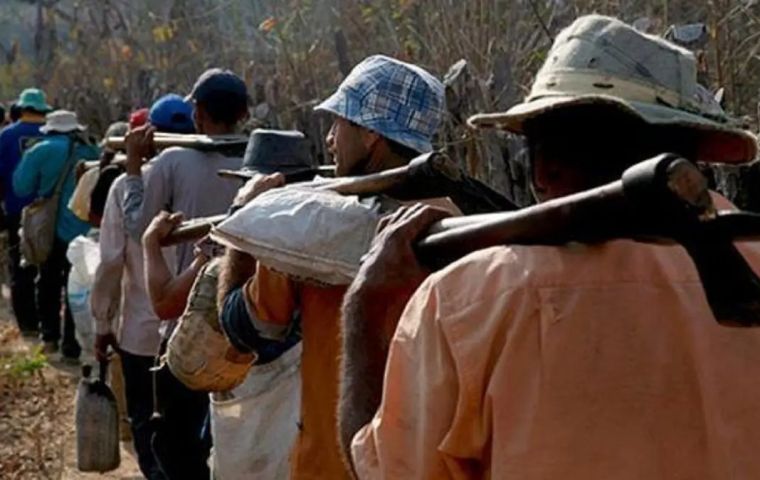
BRASILIA, Feb 3 (NNN-MERCOPRESS) — Numerous businessmen and politicians were singled out in a Labor Ministry report on slave-like working conditions in South America’s largest country, released this week.
Over the last three decades, over 65,500 people have been rescued from such a situation. In 2024 alone, 1,035 inspections were carried out, resulting in 2,004 people being rescued, as the local feebleness of human rights was once again exposed.
According to the Labor Ministry, some 8,400 control operations since 1995 resulted in those releases. Only then did Brazil officially recognize the existence of contemporary forms of slavery. Since 2003, some US$ 26.4 million has been spent on compensation to victims. Prior to 2003, there was no accurate record, as the Rescued Worker’s Unemployment Insurance (SDTR), which consists of three payments equivalent to the minimum wage, was implemented that year, it was explained.
Under Brazil’s Penal Code, work analogous to slavery is that which involves forced labor, strenuous working hours, degrading conditions, or restrictions on mobility due to “debts” contracted with the employer.
In 2023, over 3,100 people were rescued from their subjugation, which was detected mostly in construction, coffee cultivation, agriculture, and horticulture. Although forced labor tends to occur in rural areas, it is also widespread in large cities, where it is detected mainly in the textile sector, which employs a greater number of women.
Brazilian authorities created in 2004 the so-called “dirty list” of slave labor, where people and companies imposing those conditions on others were included as a warning to potential victims. The United Nations (UN) deemed that initiative a key tool in the fight against modern-day slavery.
Inclusion on the slave labor list is not a judicial sanction, but a transparency tool for society to know which companies and individuals have been identified as exploiting people in degrading conditions, it was explained. — NNN-MERCOPRESS






